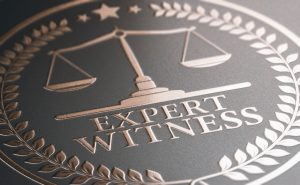 Moore v. Intuitive Surgical, Inc., 995 F.3d 839 (11th Cir. 2021). The use of expert witnesses has become an integral and indispensable aspect of American litigation, and it is often the side with the best expert who wins the day. The use of science in the courtroom to advise judges and juries on technical and scientific issues which bear on the arrival at a just and fair outcome was, and still is, a controversial subject. The use of expert testimony in American litigation has grown exponentially since it came into focus, and the use of experts is now frequently used to place into evidence opinions and circumstances related to opinion, which would not otherwise have been put into evidence. The sale of expert testimony began to grow during the mid-19th Century, adding fuel to the fire of a new litigation industry. Throughout the 20th Century, American courts and legislatures made numerous efforts at reforming the business of selling forensic opinions which are truly not based in sound science, also known as “junk science.”
Moore v. Intuitive Surgical, Inc., 995 F.3d 839 (11th Cir. 2021). The use of expert witnesses has become an integral and indispensable aspect of American litigation, and it is often the side with the best expert who wins the day. The use of science in the courtroom to advise judges and juries on technical and scientific issues which bear on the arrival at a just and fair outcome was, and still is, a controversial subject. The use of expert testimony in American litigation has grown exponentially since it came into focus, and the use of experts is now frequently used to place into evidence opinions and circumstances related to opinion, which would not otherwise have been put into evidence. The sale of expert testimony began to grow during the mid-19th Century, adding fuel to the fire of a new litigation industry. Throughout the 20th Century, American courts and legislatures made numerous efforts at reforming the business of selling forensic opinions which are truly not based in sound science, also known as “junk science.”
In 1993, the U.S. Supreme Court decided the case of Daubert v. Merrell Dow Pharmaceuticals, 509 U.S. 579 (1993) setting a new standard for the admissibility of expert testimony which is now used in 34 states. Known as the Daubert Standard, it is used by judges to make a preliminary assessment of whether an expert’s scientific testimony is based on reasoning or methodology that is scientifically valid and can properly be applied to the facts at issue. Under this standard, the factors that may be considered in determining whether the methodology is valid are:
- whether the theory or technique in question can be and has been tested;
- whether it has been subjected to peer review and publication;
- its known or potential error rate;
- the existence and maintenance of standards controlling its operation; and
- whether it has attracted widespread acceptance within a relevant scientific community.
On April 22, 2021, the 11th Circuit Court of Appeals decided the case of Moore v. Intuitive Surgical, Inc. Moore underwent a robotically assisted laparoscopic during which she was permanently injured when her left ureter was burned during the procedure. Moore sued the manufacturer of the tool used in the surgery—a pair of miniature electrified scissors—because it leaked electrical current during operations. Moore retained the services of Dr. Michael Hall to testify as an expert witness on (1) the standard of care in hysterectomy procedures and (2) the cause of her injuries. Dr. Hall was a board-certified OB/GYN who practices gynecological surgery in Englewood, Colorado, and taught Obstetrics and Gynecology at the University of Colorado’s medical school. Hall routinely reviewed complications arising in a variety of gynecological procedures—including ureteral injuries occurring during hysterectomy procedures. However, he had no experience using the specific tool used in Moore’s surgery.
The manufacturer of the tool moved to exclude the testimony of Dr. Hall, arguing that, because Dr. Hall does not use the instrument at issue in this case, he was not qualified to render expert testimony on the cause of Moore’s injury. During a two-day Daubert hearing, the plaintiff pointed out that Dr. Hall had performed the same procedure with different tools over four thousand times. Despite this, the trial court agreed with the manufacturer and excluded Dr. Hall’s testimony. Because Dr. Hall was Moore’s only causation expert, the trial court dismissed the case.
On appeal, the 11th Circuit held that the surgeon/medical expert was not automatically disqualified under the Daubert expert admissibility standard due to his lack of experience using the tool in prior surgeries. The “exacting analysis” which judges perform on the foundation of an expert’s opinion, in determining admissibility of his testimony under Daubert, applies only to an experts’ methodology in reaching his opinion and the perceived deficiencies went to reliability of expert’s opinion, not his qualifications to testify. The appellate court held that Dr. Hall was not automatically disqualified under the Daubert Standard due to his lack of experience using the tool in prior surgeries. The “exacting analysis” which judges perform on the foundation of an expert’s opinion, in determining admissibility of his testimony under Daubert, applies only to an experts’ methodology in reaching his opinion and, therefore, is relevant to only the reliability prong of the analysis.
Familiarity with the standards for expert testimony is necessary for effective subrogation investigation and inspections because an expert who cannot testify is not going to help the subrogation effort. For a 50-state chart detailing the law in every state with regard to the admissibility of expert testimony, see HERE. For questions on subrogation involving product defects which cause injury or property damage or admissibility of expert testimony, please contact Gary Wickert at gwickert@mwl-law.com.






